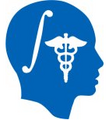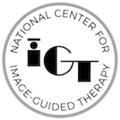Difference between revisions of "Event:2011 Registration Retreat"
From NAMIC Wiki
(→Agenda) |
(→Topics) |
||
| Line 47: | Line 47: | ||
=Topics= | =Topics= | ||
*Current Practice | *Current Practice | ||
| − | |||
**e.g. brainsfit, robust registration module in slicer... | **e.g. brainsfit, robust registration module in slicer... | ||
*Biomedical drivers | *Biomedical drivers | ||
Revision as of 03:18, 24 January 2011
Home < Event:2011 Registration RetreatContents
Back to Events
Logistics
Dates: Feb 19-23, 2011
Location: Hilton Caribe, San Juan, Puerto Rico. See some background about this hotel.
Room Reservation: Click here to reserve a room at the hotel
This event will bring together registration algorithm researchers from NAC, NA-MIC, NCIGT and close associates. The agenda is subject to change.
Agenda
Saturday
- 6pm, location xx
- Moderator: Ron Kikinis
- Organization of the rest of the week
- Initial discussions
Sunday
- Session Chairs: Wells, Aylward, Gerig
- 9am-noon: meeting
Monday
- Session Chairs: Rohlfing, Pohl, Westin
- 9am-noon: meeting
- 2-6 discussion
Tuesday
- Session Chairs: Kapur, Tannenbaum
- 9am-noon: meeting
- 2-6 discussion
Wednesday
- Session Chairs: Zollei, Kolasny, Halle
- 9am-noon: meeting
- 2-6 discussion
Topics
- Current Practice
- e.g. brainsfit, robust registration module in slicer...
- Biomedical drivers
- organs gliding relative to each other
- resection
- variable stiffness: combination of different properties: rigid bone, gliding and deforming muscle.
- registration across scales (histology to MR/CT/US)
- multimodal image registration: MR - US...
- 4D Registration
- image guided surgery
- Technical
- Model to Image Registration
- Uncertainty Representation
- Convergence of Segmentation and Registration
- Atlases and knowledge representation
- Evaluation & comparison of registration results
- Voxel anisotropy
- "Future" Practices
- sampling techniques
- objective functions
- deformation modeling
- Interface Considerations
- Initial transforms and constraints
- Communication standards for spatial transforms and coordinate systems (support for nonrigid transforms)
- Dynamic feedback and steering
- Transform visualization and validation
Registered Attendees
- Aylward,
- Fedorov,
- Gerig,
- Golland,
- Halle,
- Kapur,
- Kikinis,
- Kolasny,
- Meier,
- Pace,
- Pohl,
- Rohlfing,
- Schroeder,
- Styner,
- Tannenbaum,
- Toews,
- Wells,
- Westin,
- Zollei


